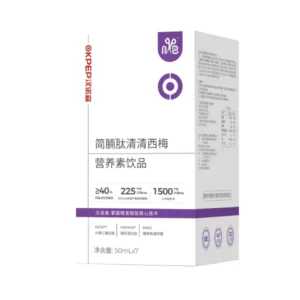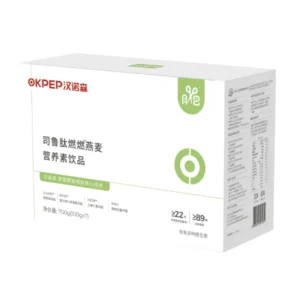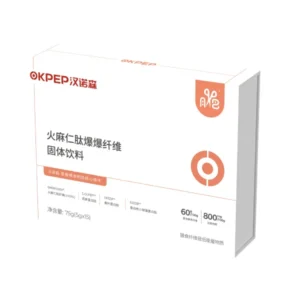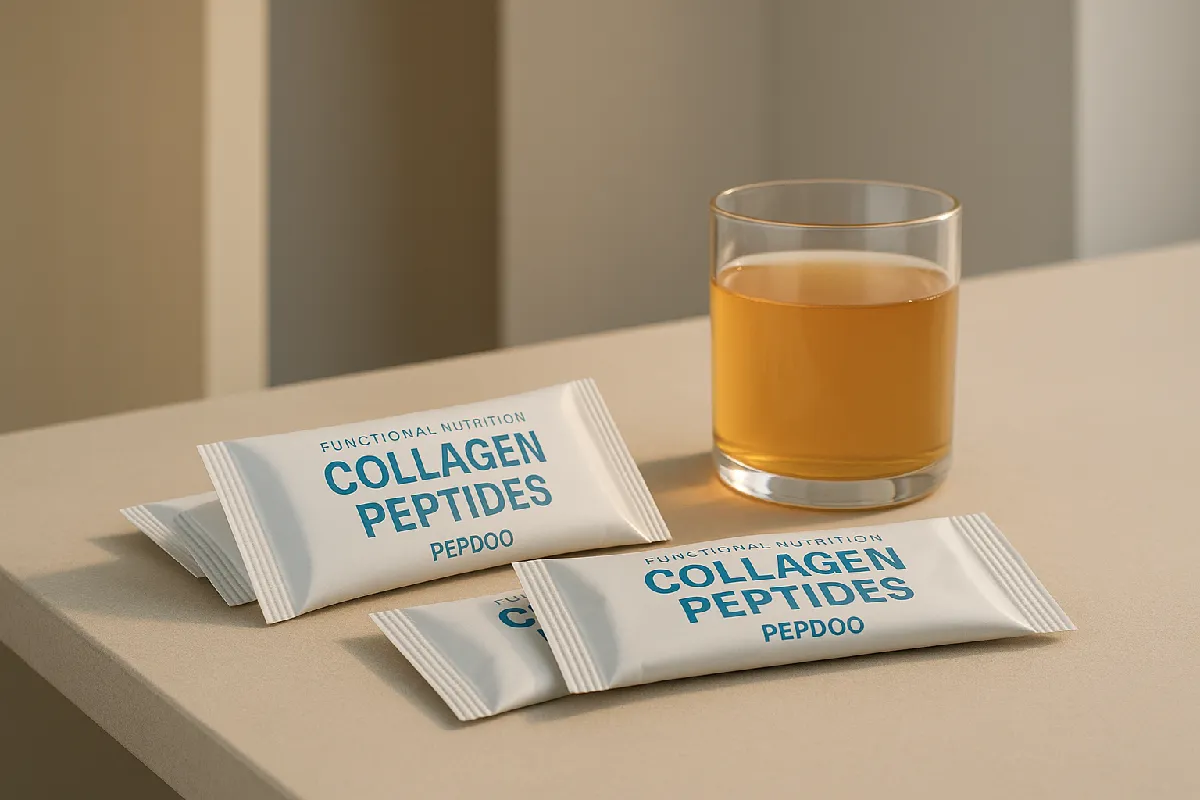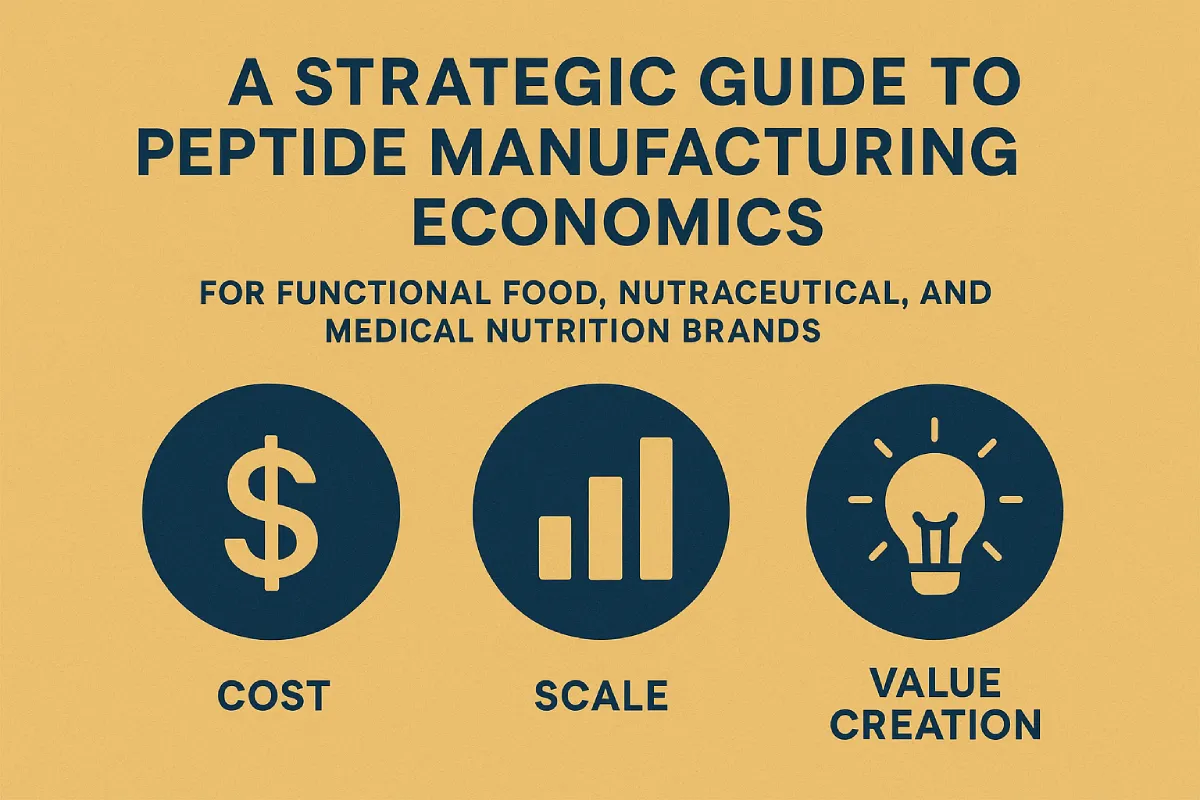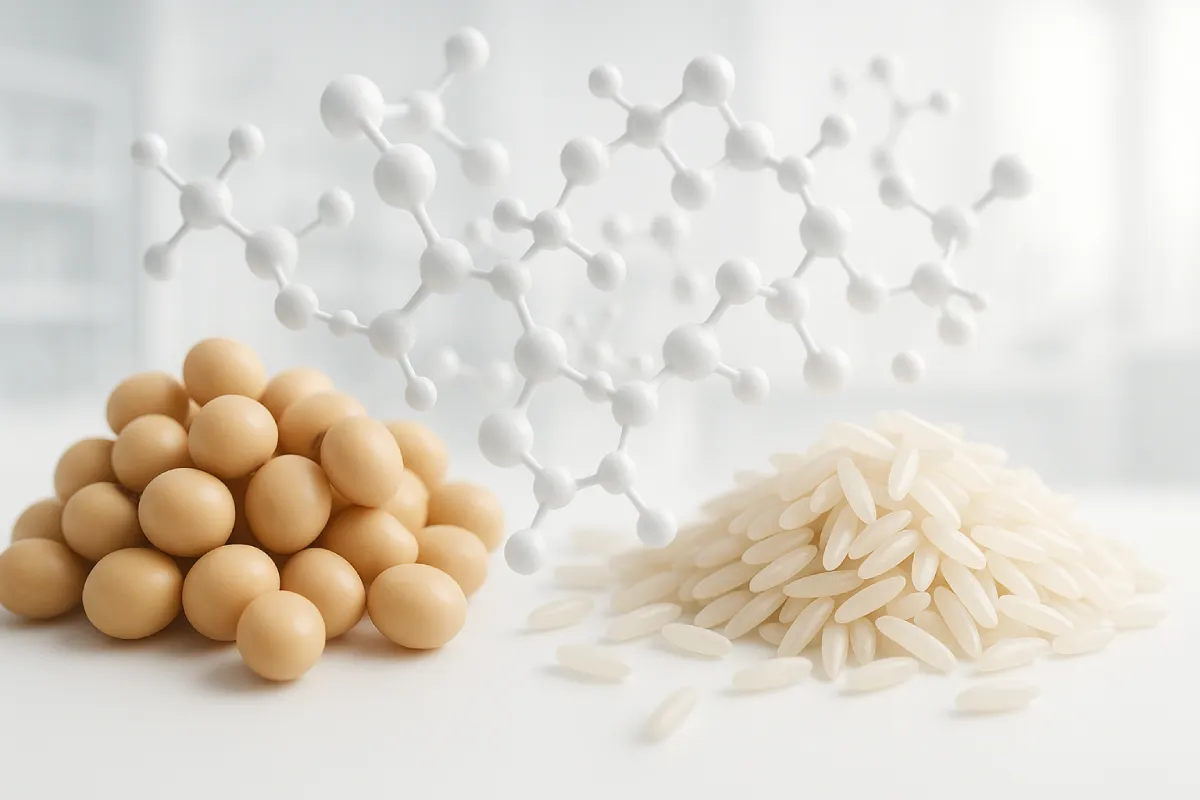The Global Obesity Challenge and the Rise of Functional Peptides
Obesity has emerged as a critical global health crisis. According to the World Health Organization, over 1.9 billion adults were overweight in 2016, and more than 650 million of them were classified as obese. While traditional weight management strategies—such as calorie-restricted diets and increased physical activity—remain foundational, their long-term efficacy is often limited due to physiological, genetic, and behavioral factors.
This has spurred growing interest in functional peptides—short chains of amino acids with targeted bioactivity—as natural, science-backed agents for weight control. By influencing metabolic pathways, appetite regulation, fat metabolism, and muscle preservation, these peptides offer a promising adjunct or alternative to conventional weight loss methods.
Understanding Functional Peptides
Functional peptides, also known as bioactive peptides, are specific protein fragments that exert beneficial physiological effects beyond basic nutrition. Derived from food sources such as soy, milk, collagen, and hemp, these peptides are typically released through enzymatic hydrolysis during digestion or manufacturing.
Once absorbed, they can interact with hormone receptors, enzymes, and signaling pathways in the body to regulate processes such as:
Appetite and satiety
Lipid metabolism
Energy expenditure
Muscle preservation
Their specificity and natural origin make them highly attractive in the development of functional foods, nutraceuticals, and targeted supplements.
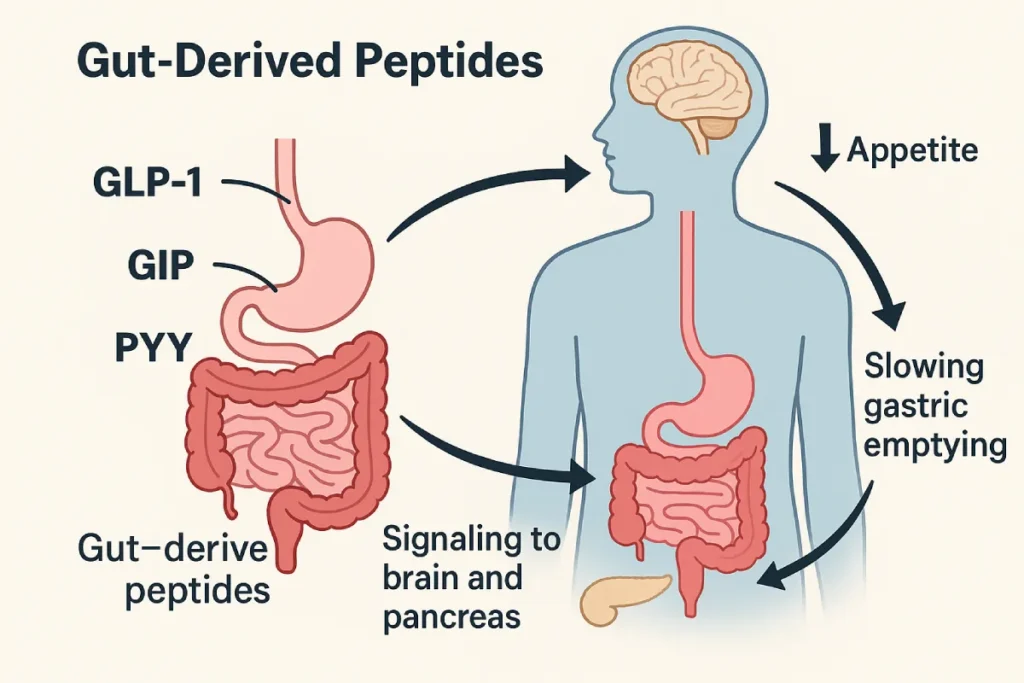
Mechanisms of Action in Weight Management
🔹 Appetite Regulation
Certain peptides mimic or influence gut hormones involved in satiety, such as:
Glucagon-like peptide-1 (GLP-1): slows gastric emptying and increases satiety.
Peptide YY (PYY) and cholecystokinin (CCK): signal fullness and suppress appetite.
Approved drugs like semaglutide (Wegovy) and liraglutide (Saxenda) are GLP-1 analogs, demonstrating the therapeutic potential of peptide-based appetite control.
🔹 Fat Metabolism
Peptides can modulate fat metabolism by:
Activating AMPK, a key energy sensor that promotes lipid oxidation.
Suppressing lipogenic genes, such as FAS and SREBP-1c, reducing fat accumulation.
Inhibiting adipogenesis, the formation of new fat cells.
This modulation helps improve lipid profiles and reduce visceral fat.
🔹 Muscle Mass Preservation
During weight loss, maintaining lean muscle mass is vital for sustaining metabolic rate. Specific peptides, especially those rich in branched-chain amino acids (BCAAs) like leucine, support:
Protein synthesis
Muscle repair
Positive nitrogen balance
Collagen peptides, when combined with resistance training, have been shown to increase fat-free mass and muscle strength in older adults.
Scientific Evidence Supporting Functional Peptides
Here is a comparison of key studies across different peptide types:
| Peptide Type | Key Benefits | Study Highlights |
|---|---|---|
| Collagen Peptides | ↓ body fat, ↑ lean mass | 12-week RCT in adults ≥50 years old (15 g/day) |
| Soy Peptides | ↓ body weight, BMI, and fat % | Clinical trial with overweight and obese participants |
| Marine Collagen Peptides | ↓ visceral fat, ↓ weight | Animal study in high-fat diet-fed mice |
| Hemp Seed Peptides | ↓ triglycerides & cholesterol, ↑ AMPK activity, modulate gut flora, appetite suppression | Multiple preclinical and in vitro studies |

In Focus: Hemp Seed Peptides
Hemp seed peptides, obtained from enzymatically hydrolyzed hemp proteins, are increasingly recognized for their multifaceted benefits in weight management:
✔ Effects on Lipid Metabolism
Hemp protein hydrolysates activate AMPK and suppress fat synthesis genes (FAS, SREBP-1c).
In mice fed a high-fat diet, hemp peptides significantly lowered serum triglyceride and cholesterol levels.
*(Source: Food & Function)
✔ Appetite Regulation & Satiety
Hemp peptides may boost levels of CCK and PYY, key hormones in appetite suppression.
Some sequences show opioid-like activity, affecting neurotransmitters tied to hunger and satisfaction.
✔ Gut Microbiota Modulation
Emerging research links hemp peptides with a healthier Firmicutes/Bacteroidetes ratio, addressing dysbiosis common in obesity.
Modulated microbiota improve energy homeostasis and inflammation control.
✔ Muscle Preservation During Caloric Restriction
Rich in BCAAs, hemp peptides may reduce muscle catabolism and support lean mass retention in calorie-deficit states.
Animal models show a positive nitrogen balance and reduced muscle loss.
Applications in Functional Foods and Supplements
Functional peptides are now being widely incorporated into various innovative products designed to support weight management and overall metabolic health. Examples include:
Protein supplements: Peptide-enriched powders and bars that help maintain muscle during fat loss.
Meal replacements: Formulations enhancing satiety to reduce calorie intake.
Functional beverages: Drinks infused with collagen or appetite-regulating peptides.
Capsules/softgels: Concentrated delivery of targeted peptide sequences.
For instance, PEPDOO® offers cutting-edge peptide-based drinks that exemplify these applications:
Hemp Seed Peptide Fiber Drink combines hemp seed peptides with dietary fiber, promoting lipid metabolism, appetite regulation, and gut microbiota balance, providing a natural, plant-based solution for weight control.
Prune & Amla Detox Drink leverages antioxidant-rich prune and amla extracts along with functional peptides to support detoxification and digestive health, critical factors in effective weight management.
Sirupeptide Burn Oat Peptide Drink features oat-derived peptides that enhance energy expenditure and fat oxidation, helping users burn calories more efficiently while preserving muscle mass.
These product innovations highlight how functional peptides can be seamlessly incorporated into convenient, consumer-friendly formats that meet modern demands.
 Quick View阅读更多Weight Management & Metabolism Support
Quick View阅读更多Weight Management & Metabolism SupportJianNan® Clear Plum Peptide Nutritional Drink
 Quick View阅读更多Weight Management & Metabolism Support
Quick View阅读更多Weight Management & Metabolism SupportSirupeptide Burn Oat Functional Beverage
 Quick View阅读更多Weight Management & Metabolism Support
Quick View阅读更多Weight Management & Metabolism SupportFiber-Pop Instant Drink Mix with Hemp Seed Peptides
Market Trends and Consumer Preferences
With rising awareness of obesity and metabolic disorders, consumers are seeking natural, science-supported weight solutions. Key trends include:
Clean-label ingredients
Personalized nutrition
Plant-based peptides like soy and hemp
Convenient formats: RTD (ready-to-drink), sachets, gummies
The global market for weight management products is expected to exceed $150 billion annually within the next decade, with peptides playing a key role in that growth.
Challenges and Regulatory Considerations
Despite their potential, the use of functional peptides faces important hurdles:
Regulatory Approval: Claims must be substantiated by human clinical trials and comply with local health authorities.
Stability & Bioavailability: Peptides must remain intact through digestion and maintain efficacy in formulations.
Individual Variability: Genetic, metabolic, and lifestyle factors can influence outcomes, requiring personalized strategies.
Conclusion: Embracing Functional Peptides in Weight Management
Functional peptides represent a scientifically sound, naturally derived, and highly versatile strategy in the global fight against obesity. With effects spanning appetite suppression, fat metabolism, gut health, and muscle preservation, they can effectively complement traditional approaches to weight loss.
As more research emerges and product innovation continues, functional peptides are poised to become a cornerstone of next-generation nutritional solutions—bridging the gap between food, medicine, and personalized health.
FAQs About Functional Peptides for Weight Management
Functional peptides are specific amino acid sequences that deliver targeted physiological effects, such as appetite control or fat metabolism. In contrast, traditional protein supplements provide a general mix of amino acids without specific bioactive roles.
Most food-derived peptides—such as those from soy, milk, collagen, or hemp—are generally recognized as safe (GRAS). However, long-term use should be guided by a healthcare professional, especially for individuals with chronic health conditions or those taking medication.
No. Peptides are not a magic bullet. They are most effective when used as part of a comprehensive weight management strategy, including a healthy diet and regular physical activity. They can enhance results, not replace core lifestyle habits.
Yes. Functional peptides are typically produced via enzymatic hydrolysis of natural proteins like soy, fish collagen, milk, or hemp. This gentle, chemical-free process preserves their bioactivity and aligns with clean-label and natural product trends.

